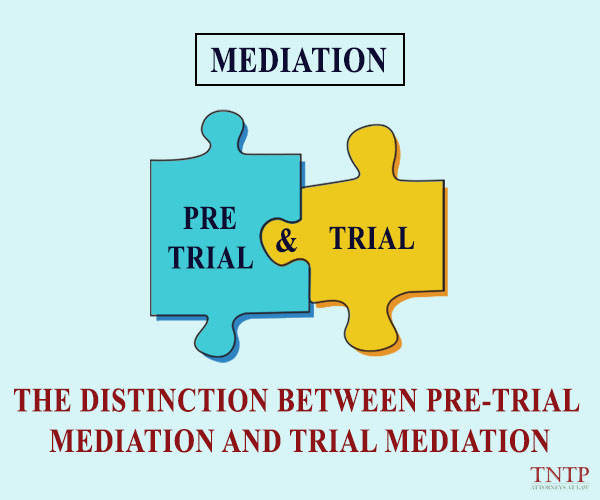Mediation is one of the methods to resolve disputes and recover debts between businesses. In previous articles, TNTP has analyzed the benefits of mediation, the pros and cons of pre-trial mediation and trial mediation. In this article, TNTP will analyze the differences between the two types of mediation and choose the type that will be more beneficial to the business.
1. About the cost of pre-trial mediation and trial mediation
Pre-trial mediation will be conducted before trial mediation, and businesses can choose to conduct both methods. However, unlike pre-trial mediation when businesses may not pay any costs or only pay a very small fee, trial mediation can only be conducted when the Court has accepted the petition, which means that the plaintiff must pay the full court fee advances.
For some disputes with a small amount in dispute, the court fee advance may be insignificant. However, if the amount in dispute is from several billion to several tens of billions, the plaintiff has to pay tens to hundreds of millions for court fee advances. Thus, compared with pre-trial mediation, the cost of trial mediation will be much higher.
2. About the time to conduct pre-trial mediation and trial mediation
If the pre-trial mediation stage goes smoothly and the parties agree on a successful mediation plan, the total time from the time the Court conducts the mediation until the issuance of the Decision on recognition of the successful mediation results can only last a month. This decision is also enforceable equivalent to the Court’s decision or judgment at the first instance or appellate stage.
On the contrary, trial mediation begins after the Court accepted the petition, the Court needs time to arrange the mediation schedule. The time from filing a lawsuit petition to when the Court accepts this petition lasts from 03 to 06 months, but this period may be longer depending on the actual circumstances and cases. Thus, in case the parties agree on a mediation plan for the Court to issue a decision on recognition of the agreements between involved parties, it will take at least 03 months from the filing of the petition. Thus, compared with pre-trial mediation, trial mediation will take more time to be conducted.
3. Should businesses choose pre-trial mediation or trial mediation?
Creditors can conduct both methods of mediation because the Court is the organizing authority for pre-trial mediation and trial mediation. When the two parties mediate successfully, the Court issues the decision to recognize the successful conciliation result or the decision on recognition of the agreements between involved parties. The debtor must perform the debt payment obligation to the creditor, in case the debtor fails to perform this obligation as committed, the creditor has the right to request the enforcement agency to force the debtor to make the payment.
However, one of the most important factors for successful mediation is that both parties must have good faith, if the debtor does not cooperate, both methods will not be successful. At that time, the case will be moved to the first-instance trial stage, the Court will base on documents and evidence to issue a judgment to settle the case.
The above is the analysis of TNTP related to pre-trial mediation and trial mediation. Hope this article is useful for businesses.
Best regards.







